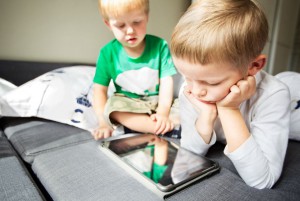
Why “iPad Kids” Are a Growing Concern for Educators and Parents
Several educators are leaving the teaching profession due to burnout, low pay rates, and difficult student behaviour problems. However, another emerging factor has caught the attention of social media: the rise of the “iPad Kid.”
The Emergence of the “iPad Kid”
Are “iPad Kids” a problem? According to Andra, a TikTok user and experienced nanny, excessive screen time is negatively affecting children’s behaviour and development. She argues that unrestricted tablet use leads to poor behaviour in children, short attention spans, and limited social skills, raising concerns among parents, educators, and researchers alike.
Research on how iPads affect children’s behaviour supports Andra’s observations. Negative effects include emotional regulation problems, difficulty focusing, and speech delays in children. Andra also highlights the role of parents who rely on tablets as electronic babysitters, warning of long-term consequences. Additionally, the constant digital stimulation may stifle creativity, imagination, and the ability to engage in independent play.
The Tablet Tantrum: Setting Boundaries
Andra blames parents’ inability to set proper boundaries for children’s tantrums and aggressive behaviours when tablet access is denied. Does this mean iPads are bad for toddlers or children of any age? Andra acknowledges that tablets can be useful in some situations, such as keeping kids occupied while dining out.
However, she emphasises that the responsibility for raising well-adjusted children lies with parents. To ensure healthy child development, parents must establish clear screen time rules and limit tablet use. Questions like “how much time should a 7-year-old spend on an iPad” are crucial to consider, as moderation and balance are key.
Is Technology a Boon or Bane in the Classroom?
The role of technology in schools is another contentious topic. Many wonder, “are iPads good for child development in education?” While some believe technology enhances learning, many teachers report that student behaviour issues arise when devices are used in class.
Critics argue that iPads in schools may harm critical thinking skills and reduce information retention. Traditional methods, such as books and class discussions, are often seen as more effective for fostering engagement and deeper learning.
Moreover, concerns like “are iPads bad for your brain?” and “can iPads damage children’s eyes?” are growing. Long-term exposure to screens may lead to eye strain and other health problems, raising further doubts about whether iPads are kid-friendly or suitable for classroom use.
Why Educators Should Rethink Technology in Schools
The article concludes with a call to rethink the role of technology in learning. Educators are encouraged to strike a balance between digital tools and traditional teaching methods. Prioritising critical thinking, social interaction, and hands-on activities can help create a well-rounded, effective learning environment.



